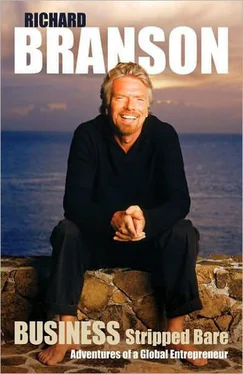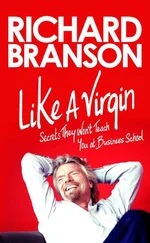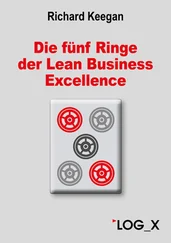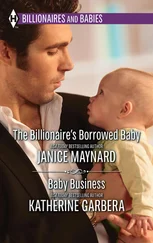On CNBC’s Power Lunch programme, I repeated my pledge. ‘Obviously we are in the transportation business and we do our fair share of spewing out CO 2… We are pledging that any money that comes back to the group in the form of dividends, share sales or flotation, that 100 per cent will be invested in tackling global warming. We expect over the next ten years to put aside around three billion dollars.’
My notebooks for the weeks following my announcement are spiderwebbed with figures and arrows and exclamation marks as I tried to understand the economics of the fuel debate.
Less than a week later, on 27 September, Virgin Atlantic unveiled an initiative to reduce carbon emissions from aviation by up to 25 per cent. Our airlines use around 700 million gallons of fuel a year. I wanted to cut back on this consumption and floated a few ideas. At the time, I knew these were ambitious targets. What if our planes were towed to the runway before the engines were started? We proposed starting grids for planes at airports, and a method of landing planes called the ‘continuous descent’ approach, which meant a saving in fuels. We also pointed the finger at Europe’s air traffic control system, which is punishing the environment by keeping planes on holding patterns in the sky. (There are thirty-five separate traffic-control organisations in Europe; there’s a single one for the whole of the US!) Virgin Atlantic was working to pull together the airlines to make commercial flying more environmentally friendly, and by 2008, many of the world’s airlines — now faced with growing criticism over their contribution to global warming — had begun to adopt these procedures to save vital aviation fuel.
Of course, we could all stop flying tomorrow. But that’s not only an unrealistic idea, it’s politically and economically disastrous for millions of the world’s poor. If you stop people going to Africa, say, you will only increase the hardship of the people there. Many African nations have been building up worthwhile and profitable tourism ventures. You only need to look at Kenya in 2007, and how tourism dried up after the disputed presidential election results and the massive loss of jobs that followed, to recognise the industry’s importance, and the destabilising effect the loss of tourism can have on a nation.
The global economy now depends on aviation and tourism, two of the world’s most important industries. They have grown exponentially over the last forty years and have kick-started the economies of many developing nations. I can’t see how we’re going to stop this and return to the Stone Age. People love to travel. It broadens the mind and increases international cooperation and understanding. Ironically, eco-tourism is often the best way to protect sensitive environments such as rainforests.
Slowly the aviation industry is waking up to a harsh reality: the status quo is no longer sustainable. The airframe-makers — and indeed the engine-makers — must keep searching for quieter and cleaner engines. The other issue for all airlines remains the sustained high price of oil — indeed all of our Virgin airlines have felt the pinch as fuel costs have risen. Virgin’s fuel bill went up by several hundred million dollars between 2004 and 2006. Cutting back our consumption of fossil fuels isn’t a lasting solution, however. At best, it merely postpones the coming crisis.
What is the solution?
The key to saving our environment is to create a new breed of cleaner energy sources and fuels that do not damage the atmosphere, do not lead to deforestation, and do not eat up vital food stocks that the world’s growing population will need to eat. The recent backlash against biofuels has lumped all kinds of energy and fuel initiatives together, without considering the individual arguments. But not all drugs are bad — compare aspirin with heroin — and the same argument applies to renewables generally. While I know they probably won’t provide the overall answer, I believe we have so far not even begun to find out what biofuels might be able to deliver.
Burn any organic matter — and that includes coal and oil — and you release carbon dioxide — CO 2 — into the atmosphere. Coal and oil are what happens to vegetation when it’s compressed in the earth over millions of years. If we used living vegetation — sugar cane, willow trees, peanuts, corn, coconuts — instead of these ‘fossil fuels’, then we wouldn’t be loading the carbon of previous ages on top of the carbon already in our environment. There’s a phrase I like which sums up this view: ‘Don’t dig up the dead.’
Synthetic fuels have been around since the 1910s, when fuel alcohols first went into mass commercial production. Before Prohibition in the US, cars were run on the stuff — but since ethanol is a type of alcohol, the practice was eventually outlawed for fear that people would drink it.
Vinod Khosla, the man who founded Sun Microsystems and one of the most influential investors in California — indeed, the United States — believes that ethanol is likely to be the future fuel of cars, and a far more practical option than hard-to-handle hydrogen. However, ethanol — which would otherwise be a suitable alternative for traditional aviation fuel — freezes in temperatures above 15,000 feet.
For nearly a century, the unsuitability of ethanol seems to have put the dampers on research into alternative aviation fuels. When I first started to look into this area, I was astonished at the lack of progress or interest in this field. Had no one seriously thought of putting biofuel into a plane?
Apparently not: when I first mentioned in 2006 that we were looking for a jet engine fuel that was clean, we were laughed at and mocked by environmentalists and engine manufacturers alike. People said it was absolutely impossible. It’s worth remembering that as recently as the 1950s, some airline people — including the American aviator Charles Lindbergh, then working for PanAm — didn’t think the jet engine had a future in commercial aviation. Step changes, driven by business imperatives, do happen — but they need a catalyst.
Our first port of call was Rolls-Royce, the world’s leading jet-engine makers, based in Derby. We tried to get them interested in biofuel development, but they were pursuing a different path, improving the efficiency of their engines. More than that, they told us that the fuel we wanted to develop was ‘impossible’. So we went to GE Aviation, one of their rivals, and makers of jet engines for Boeing and Airbus airplanes. They did want to help us. And with them on board, we got Boeing Commercial Airplanes interested too. At last, the key players were engaging in the hunt for clean fuels.
Many of my notes from around this time are highly technical, as I tried to wrap my head around molecular structures, enzyme activity, the chemical formation of algae… The really dizzying part, though, was trying to get to grips with the sheer scale of the fuel economy. Our transport needs for the next two decades are still likely to be met by liquid fuels to drive the internal combustion engines in our cars, boats and generators. For any alternative liquid fuels to be a viable option, we need massive amounts of feedstock — the raw material to make the energy — and it has to be cheaper than — or at least comparable to — traditional fuels.
Our studies found that cellulosic biomass meets both these requirements, as does waste from agriculture, municipal sewage and animals. This is where new businesses must emerge, and investors such as the Virgin Green Fund and Vinod Khosla are spending billions of dollars on this bet. It is not simply the feedstock but its collection, transportation and processing which needs to be tackled so that the end product is competitive with gasoline. This brings lots of opportunity — and many blind alleys. I’m going to take you down a few unlikely avenues now to give you an idea of the scale and complexity of the biofuel sector, its sheer pace and the effort that’s being invested.
Читать дальше












